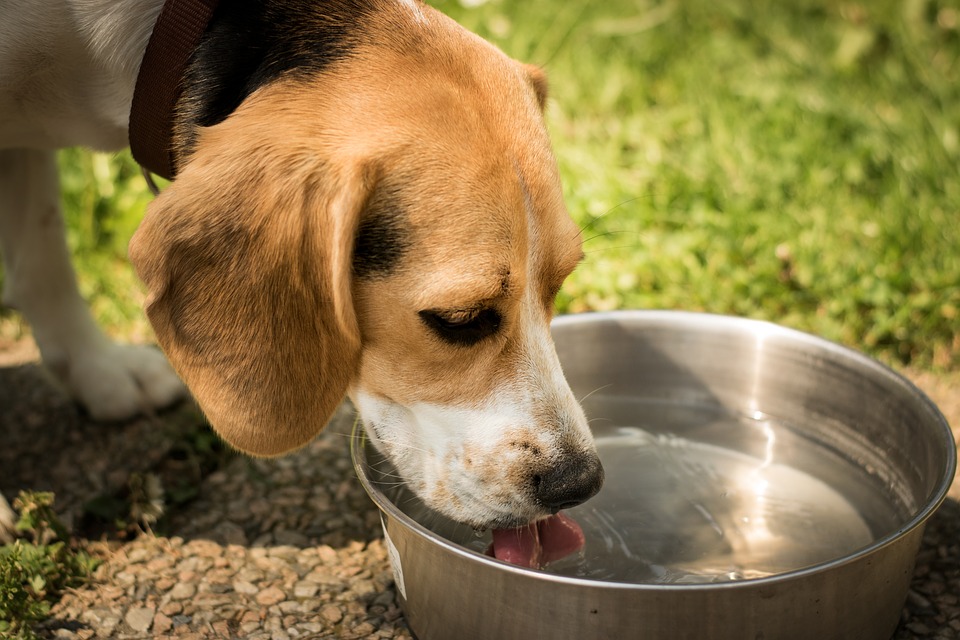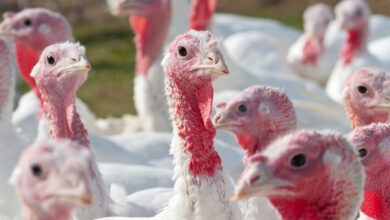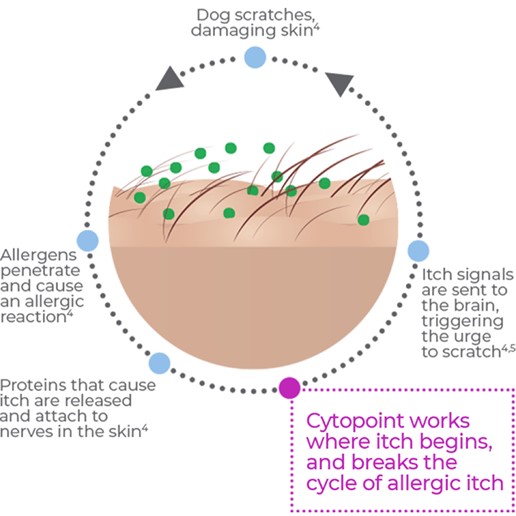Why is My Golden Retriever Skinny? (8 Causes & Solution)
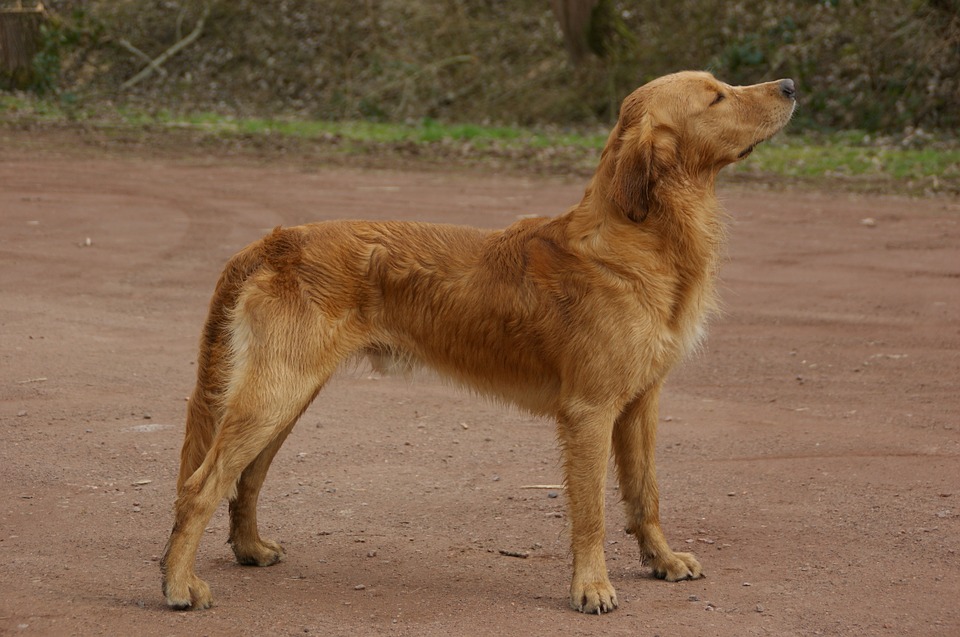
So you’re at the park, and you notice a few other Golden Retrievers walking with their owners, and it occurs to you that your Golden Retriever is noticeably thinner than the others, prompting you to wonder, “Is my dog too skinny?”
So, what’s the deal with my golden retriever being so skinny?
Best Answer: Golden Retrievers become overly slim for various causes, including malnutrition, heredity, stress, and exercise routine; whether or not you should be concerned relies primarily on whether your dog has been skinny since birth or has suddenly lost weight.
Here are a few reasons in full why your Golden Retriever might be slim and what factors make them more likely to be the cause.
Table of Contents
Why is my Golden Retriever skinny?
There are a few reasons why your Golden Retriever might be skinnier than usual:
- If your dog isn’t getting enough exercise, he may start to lose weight.
- If he’s been eating a high-fat diet, he may begin to lose weight.
- If he’s been eating a lot of junk food, he may begin to lose weight.
- If he’s been living in a cold environment, he may start to lose weight.
When getting your Golden Retriever back to his average weight, these factors are essential to consider. Ensure to provide him with plenty of exercises – both indoors and outdoors – and feed him a healthy diet that includes enough protein and fiber. Finally, make sure he is living in a warm and comfortable environment.
What are the three types of Golden Retrievers?
There are three types of Golden Retrievers
The Sporting, the Working, and the Therapy.
1-The Sporting type is the most popular, and it is used for hunting, tracking, and fieldwork.
2-The Working type is used for law enforcement, search and rescue, and firefighting.
3-The Therapy type is used for therapy, hospice care, and pet care.
Golden Retriever health issues
What are some of the health issues that can affect a Golden Retriever?
There’s little doubt that obesity is an issue in many dog breeds, yet weight gain is closely tied to several other dangerous diseases. Diabetes, hypothyroidism (an underactive thyroid gland), arthritis/hip dysplasia2, eye disorders such as cataracts or retinal disease3, cancer4, and heart disease5 have been linked to obesity in Golden Retrievers.
Genetics play an important role in hip dysplasia and other disorders, leading to early death and disability for a small percentage of your beloved puppy from the start out of many large dogs. Like almost all dog breeds, some die from diseases that their owners don’t even suspect until too late. Certain inherited conditions can cause problems such as epilepsy (epilepsy is expected but not fatal in most dogs), Von Willebrand Disease (disease of the blood vessel walls caused by a genetic defect), and skin conditions.
Allergies are common to almost all breeds, but many people choose their puppy because it’s allergy-free. A Golden Retriever with allergies is much more likely than other dogs to develop lymphoma, a type of cancer that often affects older dogs and newborn puppies.
Always take your puppy to the Vet for a full check-up so that you know what predisposes this breed to life-threatening disorders and can help prevent them.
As with all breeds, health care costs tend not to be cheap before getting big enough for the average pet owner’s insurance company to pay attention. Ask those who raise Golden Retrievers about heartworm disease, an infection that affects millions of dogs in this country every year. Heartworm disease often doesn’t show good signs in the puppy, such as limping or difficulty breathing due to an inflamed lung until it is too late for treatment. There may be no specific cure available other than prevention with regular heartworm prevention medication.
How Golden Retriever can live a long healthy life
Follow these suggestions so that your Golden Retriever can live a long healthy life:
- Feed low-fat, high-quality dog food specifically formulated for your breed.
- Never feed your young Golden food high in carbohydrates or extra fatty treats that many human owners give to their dogs.
- Give plenty of fresh, clean water so that they will often drink more than ever before, avoiding the addition of unnecessary chemicals into the dog’s drinking supply via tap water hardness and excessive arsenic content and additives in some foods.
- Always provide a dish for toileting – do not forget.
- Flush hard ground twice daily with fresh water, add a little of your dog’s food, and whatever dyes and flavoring agents (mustard oil) may have worked into the ground.
- Avoid heavy exercise, which can cause stress on their joints while they are still growing.
Why Your Golden Retriever is Too Skinny & Solution
Golden Retrievers, like humans, can become skinny for a variety of causes, the most common of which are 7:
1. Your golden retriever may lose weight and look skinny because he isn’t getting enough food or is eating low-quality food, both of which are insufficient for his daily nutritional needs and optimum health, resulting in weight loss.
2. Large, uncooked, meaty bones are ideal. Check out my guide on Golden Retriever diets and treats for all ages for recipes and recommendations (I even included homemade Ice cream, so check it out).
It’s also possible that your dog is on the inappropriate food for their age. For example, they’re still eating puppy food, even though they should be on an adult diet by now. Here’s when and how to transition your golden to adult food.
3. A Golden Retriever who is underweight or losing weight too quickly could be suffering from parasites, diabetes, or thyroid issues. This is especially likely if he has suddenly become skinny and has been experiencing other disease symptoms, including fatigue, a lack of appetite, or vomiting.
4. Your Golden Retriever’s slender appearance is likely inherited. If his parents were naturally skinny or if he was moderately skinny as a puppy and did not turn skinny suddenly, this is more likely.
Unless your dog has been exhibiting indicators of health difficulties, it would not be a cause for concern in this case.
5. Have you started leaving your golden retriever alone for extended periods recently? Have you been busier than usual? Have you recently acquired a new puppy? These things can make your dog feel stressed, leading to a decrease in appetite and weight loss.
6. If your dog is a picky eater, it may be difficult to persuade him to eat enough to be healthy, as he will avoid the food he dislikes – eating for taste rather than nutritional needs and hunger.
7. Golden Retrievers require at least one hour of high-intensity exercise to stay healthy and free of any pent-up energy that could lead to aggression or a behavior change.
8. Loss of appetite may be a sign of illness.
Change of environment did you move to a new house recently? Did you change parks? Has the staying or sleeping area of your dog changed? Changes in the dog’s surroundings or daily routine may cause confusion and anxiety, thus leading to loss of appetite. It is said that loss in appetite can also occur when dogs are not allowed enough exercise and too much homesickness while they’re away from their owners.
However, if your dog gets too much exercise and not enough nourishment to compensate, he may become overweight.
Have you lately moved into a new home? Have you switched parks? Has your dog’s sleeping or resting place changed? Changes in the dog’s environment or daily routine might induce confusion and anxiety, resulting in weight loss.
1. Choose a diet that is both complete and balanced. It’s preferable if your Vet writes down everything your dog should and shouldn’t eat, but, as a general rule, you can feed your dog chicken, meat (cooked or raw), and vegetables to keep things interesting.
2. Taking your dog to the veterinarian if he appears to be sick or has a medical problem is the best action.
3. See your veterinarian, and if you’ve been feeding it the right amount and the Vet finds no abnormalities, it’s down to genetics.
4. Look for any recent changes that may be stressing your golden retriever and try to acclimate him to his new surroundings.
5. If you feed your dog dry food, try topping it with wet or fresh food, and encourage him to eat whatever is available by refusing to change food if he refuses.
6. The goal is to balance the amount of energy your dog expands and the amount of food he consumes to meet his nutritional requirements.
7. Make sure your golden retriever isn’t having trouble adapting, as this could cause them to lose their appetite and become skinny.
How do I make my Golden Retriever puppy gain weight?
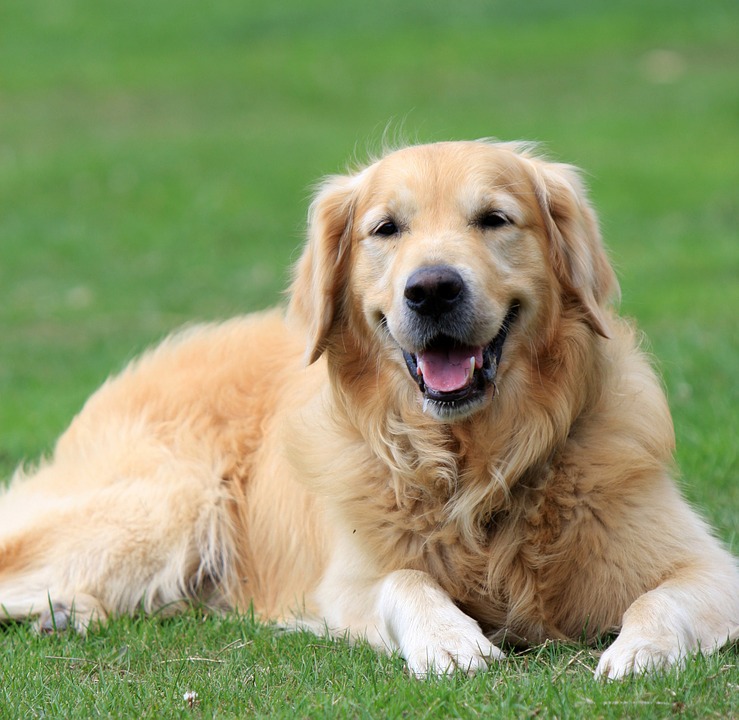
The best way to make your Golden Retriever puppy gain weight depends on their weight and calorie needs. However, some tips that can help include providing high-quality food, exercise, and plenty of socialization. If your Golden Retriever puppy is not getting enough exercise, consider purchasing a dog treadmill or engaging in other physical activities. Feed your Golden Retriever puppy three meals per day and ensure that they are getting enough water. Monitor their weight and feed them fewer calories if they start to gain weight too quickly. Ultimately, the best way to make your Golden Retriever puppy gain weight is to monitor their diet, exercise regularly, and be patient.
How do I know if my Golden Retriever is underweight?
General guidelines that may help you determine whether or not your Golden Retriever is underweight include: being able to comfortably fit your pet in a carrier or on a leash; seeing minimal evidence of muscle and bone mass (i.e., your pet appearing frail or tired); and being alert and energetic when observed. If any of these are not met, it may be time to take your pet to the veterinarian for a weight check.
It is also important to remember that weight loss is not linear and can often be sporadic and unpredictable. As a result, it is important to closely monitor your pet’s weight and make sure that their caloric intake is in line with their activity level and size. If you think that your Golden Retriever is underweight, err on the side of caution and take them to the veterinarian for a weight check.
What are the benefits of feeding a skinny golden retriever lean meat?
Feeding a skinny golden retriever lean meat is a great way to help them maintain their weight and stay healthy. Lean meat contains fewer calories and less fat than fatty meat, meaning a healthier option for your pet. Not only that, but feeding lean meat also provides them with essential nutrients to stay strong and healthy.
Lean meat contains high protein levels, which helps build muscle and keep your dog healthy and fit. It is also rich in important minerals and vitamins, including zinc, which is essential for keeping their skin and coat healthy, and vitamins B12 and B6, which are important for metabolic function. In addition, lean meat is low in cholesterol and saturated fats, two factors linked with heart disease and other health problems.
If you want to feed your skinny golden retriever the perfect diet, lean meat is a great choice.
What is the best dog food for a skinny golden retriever?
There is no one-size-fits-all answer to this question, as the best dog food for a skinny golden retriever will depend on their specific weight, activity level, and dietary needs. However, some of the best dog foods for skinny golden retrievers include Nutrish raw dog food, Wellness CORE grain-free dry dog food, Orijen raw dog food, and Blue Buffalo Wilderness dry dog food.
Each of these brands offers a variety of flavors and textures that will appeal to your pet’s taste buds. Additionally, all of these brands are made with high-quality ingredients beneficial for your pet’s health and well-being. Wellness CORE is made with natural ingredients and contains probiotics to help support your pet’s digestive system. Orijen is a grain-free food that is also low in saturated fat and cholesterol.
Conclusion
Various factors might influence Golden Retriever growth, so it’s reasonable to ask if your dog is too little compared to other Golden Retrievers.
Before taking any action, always be certain that your Golden Retriever is purebred and not a miniature Golden Retriever, which is a mixed breed and naturally small.
Improper food and lack of exercise are the two most common causes of smaller Golden Retrievers.
Always visit your veterinarian if none of the above procedures work to rectify these possible imbalances
